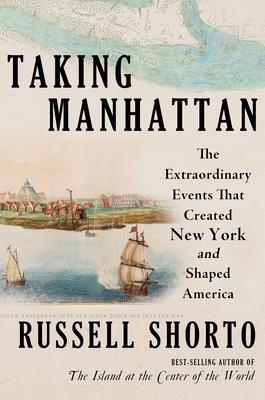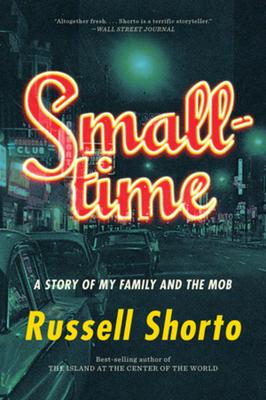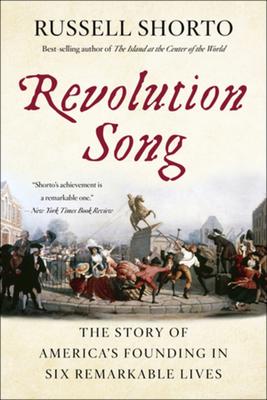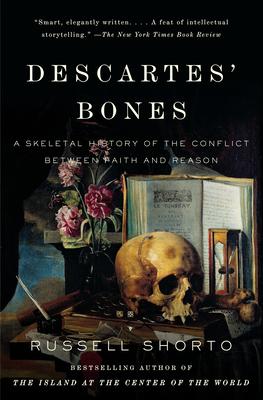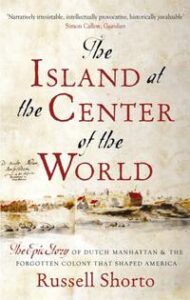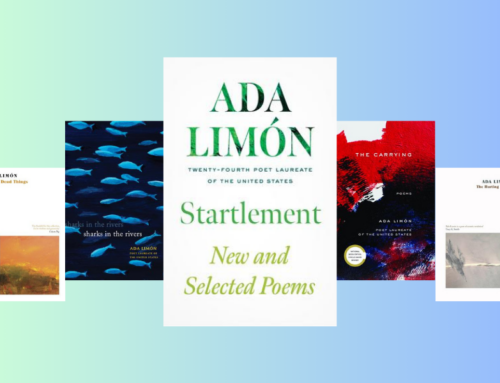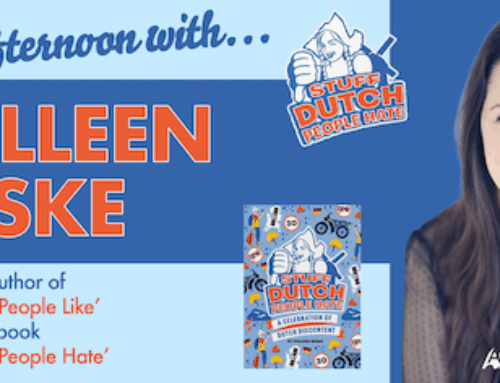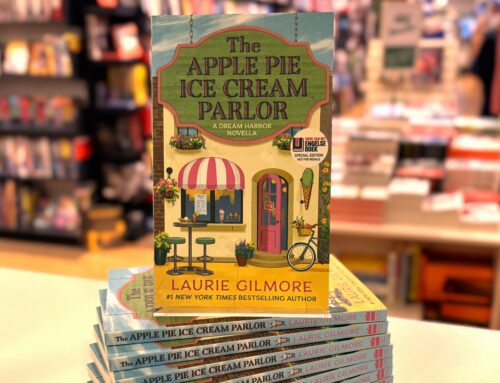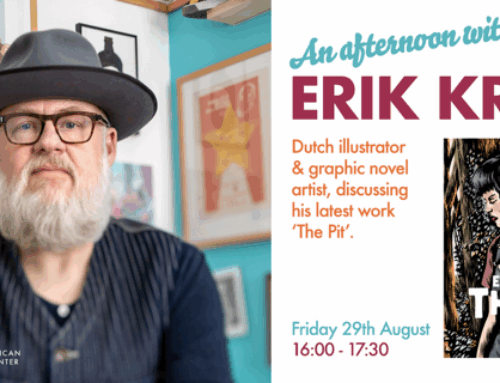By Sophie
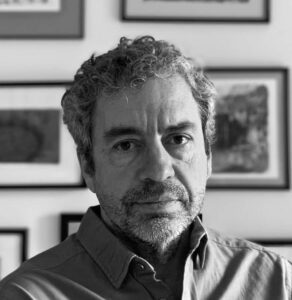 On Friday 4 April acclaimed author Russell Shorto will spend an afternoon at ABC Amsterdam to present and sign his newest release Taking Manhattan.
On Friday 4 April acclaimed author Russell Shorto will spend an afternoon at ABC Amsterdam to present and sign his newest release Taking Manhattan.
He has close ties to the Netherlands, having lived here for quite a few years while he was researching his work and director of the John Adams Institute. I can heartily recommend his books, which are well-researched and well-written histories of various peoples and places. I personally loved The Island at the Center of the World, a riveting, page-turning history that really made New Amsterdam a bustling, colorful place. His books read like bestsellers (and often are bestsellers), and he has a real knack for bringing a historical figure to vivid life on the page.
To celebrate his brief return to our country and store, I’ll be highlighting ALL his books.
Taking Manhattan: The Extraordinary Events that Created New York and Shaped America (2025)
“Bristling with vibrant characters, Taking Manhattan reveals the founding of New York to be an invention, the result of creative negotiations that would blend the multiethnic, capitalistic society of New Amsterdam with the power of the rising English empire. But the birth of what might be termed the first modern city is also a story of the brutal dispossession of Native Americans and of the roots of American slavery. The book draws from newly translated materials and illuminates neglected histories—of religious refugees, Indigenous tribes, and free and enslaved Africans.
Taking Manhattan tells the riveting story of the birth of New York City as a center of capitalism and pluralism, a foundation from which America would rise. It also shows how the paradox of New York’s origins—boundless opportunity coupled with subjugation and displacement—reflects America’s promise and failure to this day.”
Smalltime: A Story of My Family and the Mob (2021)
“Smalltime is a riveting American immigrant story that travels back to Risorgimento Sicily, to the ancient, dusty, hill-town home of Antonino Sciotto, the author’s great-grandfather, who leaves his wife and children in grinding poverty for a new life — and wife — in a Pennsylvania mining town. It’s a tale of Italian Americans living in squalor and prejudice, and of the rise of Russ, who, like thousands of other young men, created a copy of the American establishment that excluded him. Smalltime draws an intimate portrait of a mobster and his wife, sudden riches, and the toll a lawless life takes on one family.
But Smalltime is something more. The author enlists his ailing father — Tony, the mobster’s son — as his partner in the search for their troubled patriarch. As secrets are revealed and Tony’s health deteriorates, the book becomes an urgent and intimate exploration of three generations of the American immigrant experience.”
Revolution Song: The Story of America’s Founding in Six Remarkable Lives (2017)
“Revolution Song takes us back to the founding of the American nation, drawing on diaries, letters and autobiographies to flesh out six lives that cast the era in a fresh new light. They include an African man who freed himself and his family from slavery, a rebellious young woman who abandoned her abusive husband to chart her own course and a certain Mr. Washington, who was admired for his social graces but harshly criticized for his often-disastrous military strategy.
Through these lives we understand that the revolution was fought over the meaning of individual freedom, a philosophical idea that became a force for violent change. A powerful narrative and a brilliant defense of American values, Revolution Song makes the compelling case that the American Revolution is still being fought today and that its ideals are worth defending.”
Amsterdam: A History of the World’s Most Liberal City (2013)
“In this effortlessly erudite account, Russell Shorto traces the idiosyncratic evolution of Amsterdam, showing how such disparate elements as herring anatomy, naked Anabaptists parading through the streets, and an intimate gathering in a sixteenth-century wine-tasting room had a profound effect on Dutch-and world-history. Weaving in his own experiences of his adopted home, Shorto provides an ever-surprising, intellectually engaging story of Amsterdam from the building of its first canals in the 1300s, through its brutal struggle for independence, its golden age as a vast empire, to its complex present in which its cherished ideals of liberalism are under siege.”
Amsterdam is also one of our ABC Favorites.
Descartes’ Bones: A Skeletal History of the Conflict Between Faith and Reason (2008)
“Sixteen years after René Descartes’ death in Stockholm in 1650, a pious French ambassador exhumed the remains of the controversial philosopher to transport them back to Paris. Thus began a 350-year saga that saw Descartes’ bones traverse a continent, passing between kings, philosophers, poets, and painters.
But as Russell Shorto shows in this deeply engaging book, Descartes’ bones also played a role in some of the most momentous episodes in history, which are also part of the philosopher’s metaphorical remains: the birth of science, the rise of democracy, and the earliest debates between reason and faith. Descartes’ Bones is a flesh-and-blood story about the battle between religion and rationalism that rages to this day.”
“When the British wrested New Amsterdam from the Dutch in 1664, the truth about its thriving, polyglot society began to disappear into myths about an island purchased for 24 dollars and a cartoonish peg-legged governor. But the story of the Dutch colony of New Netherland was merely lost, not destroyed. Drawing on the archives of the New Netherland Project, Russell Shorto has created a gripping narrative that transforms our understanding of early America.
The Dutch colony pre-dated the ‘original’ thirteen colonies, yet it seems strikingly familiar. Its capital was cosmopolitan and multi-ethnic, and its citizens valued free trade, individual rights, and religious freedom. Their champion was a progressive, young lawyer named Adriaen van der Donck, who emerges in these pages as a forgotten American patriot and whose political vision brought him into conflict with Peter Stuyvesant, the autocratic director of the Dutch colony. The struggle between these two strong-willed men laid the foundation for New York City and helped shape American culture. The Island at the Center of the World uncovers a lost world and offers a surprising new perspective on our own.”

